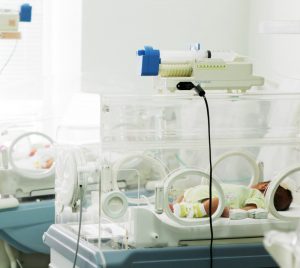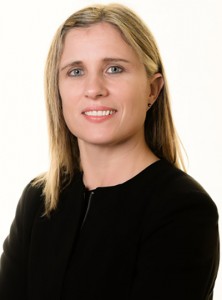Last updated on November 7th, 2020 at 08:08 pm
 Charlie’s parents wanted to take him to the US to try a last chance treatment: one that hadn’t even been tested on animals, let alone humans. They weren’t asking the NHS to pay for the treatment, but wanted the hospital to keep Charlie alive to get him to the US. Medics at Great Ormand Street Hospital (GOSH) did not support this on the basis that they felt that, in Charlie’s case, any treatment would be futile and would prolong his suffering. Charlie’s case was heard in the High Court which recently concluded with a declaration being made that it was lawful for GOSH to withdraw Charlie’s treatment thereby allowing him to die.
Charlie’s parents wanted to take him to the US to try a last chance treatment: one that hadn’t even been tested on animals, let alone humans. They weren’t asking the NHS to pay for the treatment, but wanted the hospital to keep Charlie alive to get him to the US. Medics at Great Ormand Street Hospital (GOSH) did not support this on the basis that they felt that, in Charlie’s case, any treatment would be futile and would prolong his suffering. Charlie’s case was heard in the High Court which recently concluded with a declaration being made that it was lawful for GOSH to withdraw Charlie’s treatment thereby allowing him to die.
Charlie’s isn’t the first such case, and it won’t be the last. It has been reported that in 2016, 18 cases relating to medical treatment were heard in UK courts and 10 have been heard so far this year. Many will remember the 2014 case of 5-year-old Ashya King whose parents removed him from hospital, against medical advice, to take him to Czechia for proton therapy. Ashya’s parents were arrested in Spain and had a brief spell in prison. An application to court followed and they were granted permission to go ahead with the treatment. Ashya’s parents’ gamble in removing him from hospital paid off and the treatment is said to have worked.
Parent’s rights – what happens where parents and medical professionals don’t agree?
The starting point is that all medical treatment requires consent. But what about children, like Charlie and Ashya, who can’t make decisions for themselves? It is then up to those with parental responsibility (usually the child’s parents) to agree to, or to refuse, treatment for their child. In the majority of cases most parents and medics are able to agree the way forward, but sometimes there is disagreement and in such circumstances, the family court is asked to decide.
Child’s best interests
The ultimate obligation in cases concerning withholding or withdrawing medical treatment is ‘what’s in the child’s best interests’. Under s1 Children Act 1989 the court’s paramount consideration is the child’s welfare and there is a statutory checklist of factors to take into account to assist the court in deciding where the child’s best interest lies. The judge hearing Charlie’s case, Mr Justice Francis, in his judgement (GOSH v Yates, Gard & Gard [2017] EWHC 1909 (Fam) ) indicated that mediation should be attempted in all cases in order to try and avoid litigation, but in reality, would this have worked? How could parents negotiate a resolution where it concerned the death of their child? If anything, the judge felt mediation would have at least assisted Charlie’s parents and the medics treating him to understand the process and each other’s view point.
Judge questions availability of legal aid
Charlie’s case not only raised the question over a parent’s rights but also highlighted a number of issues, including the availability of legal aid and the question of secrecy in the family courts.
The judge in Charlie’s case made reference to legal aid and asked, when Parliament changed the law in respect of legal aid, did it really intend to leave parents, like Charlie’s, with no access to funding? Instead they had to rely on solicitors and barristers working pro bono – that is for free. The judge also questioned how it could be right that parents, like Charlie’s, are left without funding when they were challenging a hospital – a state body – that was asking the court for permission to switch off life support, and yet legal aid continues to be available in cases where the local authority apply to remove children from their parents’ care.
 It is usual for family hearings to be heard in private, but Charlie’s parents decided to lift anonymity in order to raise awareness about their arguments with the hospital and allow them to be aired in open court. Journalists were free to report on each hearing, and with that came the advantages and disadvantages of social media. This provided a platform, not only for Charlie’s parents to promote their cause, but also for people to voice their opinions, whether or not evidentially based.
It is usual for family hearings to be heard in private, but Charlie’s parents decided to lift anonymity in order to raise awareness about their arguments with the hospital and allow them to be aired in open court. Journalists were free to report on each hearing, and with that came the advantages and disadvantages of social media. This provided a platform, not only for Charlie’s parents to promote their cause, but also for people to voice their opinions, whether or not evidentially based.
Our family law solicitors offer a free initial consultation to all new clients, so if you wish to discuss any family law issue please contact us now.
Nicola Cancellara, family law solicitor.
